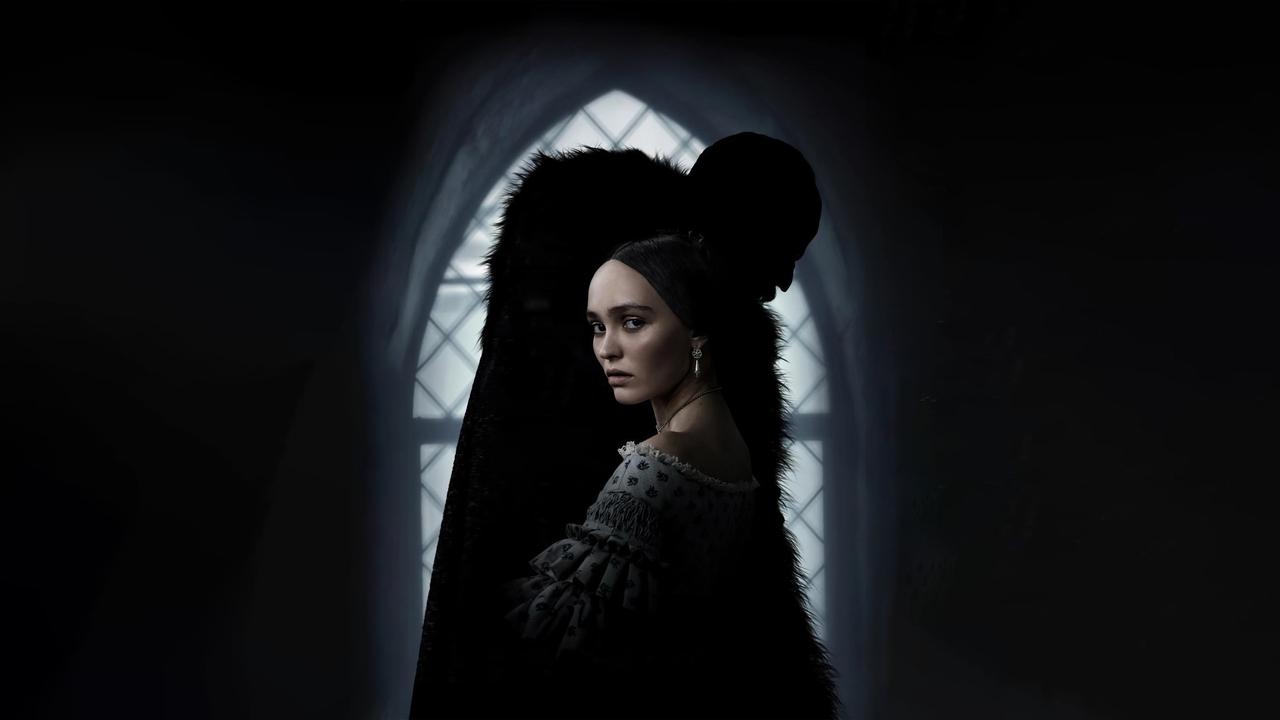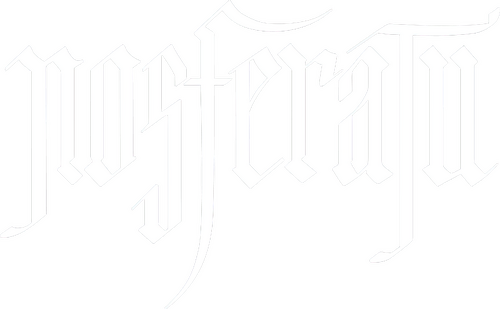
 Nosferatu
— Succumb to the darkness.
Nosferatu
— Succumb to the darkness.
Nosferatu

A gothic tale of obsession between a haunted young woman and the terrifying vampire infatuated with her, causing untold horror in its wake.

 Nosferatu
— Succumb to the darkness.
Nosferatu
— Succumb to the darkness.

A gothic tale of obsession between a haunted young woman and the terrifying vampire infatuated with her, causing untold horror in its wake.
Absolutely fantastic, such a dread-generating portrayal of the original vampire.
Do not miss this, Robert Eggers strikes gold again again.
Robert Eggers stays true to the original 1922 film in his Nosferatu remake while simultaneously remaining faithful to the folklore and adding his own details to complement the story. This is a difficult line, and Eggers walks it with the ease and precision of a funambulist. The sets and costumes are transformative, the cinematography is gothic and beautiful, and the atmosphere is thick and brooding. The film is never outright scary, but damn if it's not crushing with dread.
Absolutely stunning. Every frame like a Gothic painting.
Fantastic.
What more needs to be said, really?
The cinematography, the score, the shadow play, the way the tension and terror is built… the pictures, stunning.
So many good quotes.
I especially loved the bit about how the gas light of science has made us unable to see the other. And how Newton would have crawled back into his mother’s womb (although to my knowledge he actually was a mysticist himself). And the priestess of Isis.
Will watch again.
it reminds me of rhe 19942 movie Dracula Bran Stoker, but it really is an amazing movie
Robert Eggers delivers a visceral dive into horror with “Nosferatu,” a work that pulses with the energy of a legend retold by someone who truly believes in it. From the very first frames, it’s clear Eggers isn’t interested in modern metaphors or reinterpretations; he builds a world where the supernatural isn’t an abstract concept but a tangible force that corrupts everything in its path. The movie captures the essence of the vampire myth with a freshness that’s both terrifying and hypnotic.
Bill Skarsgård shines as Count Orlok, a figure that seems more dead than alive, with ashen skin and eyes that radiate suffocating malevolence. The character design is both innovative and deeply rooted in gothic horror traditions, evoking a predator whose human form is nothing but a disguise. Skarsgård creates a Nosferatu that feels on the brink of physical and emotional collapse, yet still manages to exert terrifying dominance. His voice—deep and almost otherworldly—seems to come from every direction, making the character a presence that extends beyond the screen. He doesn’t just play a vampire; he is the vampire, a being that drains the film of its vitality and turns it into something tangibly sinister.
Lily-Rose Depp, as Ellen Hutter, delivers a performance that contrasts perfectly with Skarsgård’s monstrosity. Her gradual transformation, as Nosferatu’s evil seeps into her, is as much physical as it is emotional. Depp uses every movement, every distant gaze, to convey Ellen’s inner struggle. It’s impressive how she balances fragility and strength, making Ellen a tragic yet powerful figure. Eggers places Ellen at the emotional core of the story, adding depth that elevates the film beyond being just a horror tale into something more intimate and psychological.
Nicolas Hoult, as Thomas Hutter, provides a naïve counterpoint to the darkness surrounding him. His character is a man trapped between ambition and a horror he can’t fully comprehend. Hoult brings a touch of vulnerability to the role, grounding the story in something more human. Willem Dafoe, as Professor Von Franz, is a solid, almost archetypal presence. He brings a tone of mystical authority to the film without ever going over the top. His performance is restrained but magnetic, reinforcing the feeling that we’re witnessing a clash of forces far greater than the characters themselves.
Technically, “Nosferatu” is a masterpiece. The cinematography is breathtaking, with landscapes that seem to exist in a liminal space between reality and dreams. Eggers and his team transform dark forests and decaying castles into living, breathing characters—places with a primal, malignant life of their own. The camera doesn’t just observe; it floats and weaves through the settings, almost as if guided by Nosferatu himself. The color palette, dominated by muted tones, evokes a world caught between life and death.
The soundtrack is another highlight—a tapestry of unsettling sounds that blends seamlessly with the sound design. There’s a constant low hum that permeates the film, creating an atmosphere of relentless tension. This isn’t just a movie to watch; it’s one to feel, as if the audience is being pulled into the dark vortex Eggers has created. Watching it in IMAX is an absolute must.
What truly sets “Nosferatu” apart is Eggers’ commitment to building a narrative that feels like it belongs entirely to the 19th century. There’s no modern irony or outside commentary; the film is fully immersive, as if the director unearthed a lost artifact from another era. This authenticity is undoubtedly the result of Eggers’ meticulous research into vampire mythology, which he explores with a depth rarely seen in cinema.
It’s fascinating how the film resurrects and deconstructs the primal fears that shaped gothic imagery. The portrayal of Eastern Europe as a mystical, threatening place—the “Other” to Western rationality—is explored without feeling outdated or prejudiced. Instead, Eggers uses these ideas to create a backdrop that amplifies the horror and adds rare thematic depth to the story.
“Nosferatu” is a bold reimagining of one of horror’s most iconic tales. Robert Eggers skillfully balances tradition and innovation, crafting a film that stands out with its unique identity, even while revisiting a classic narrative. Without relying on prior knowledge of other versions, the film reaffirms the power of cinema to evoke both the sublime and the terrifying, proving that old stories, when well told, can still leave a profound impact.
Lily-Rose Depp very early in her carrier has given a lifetime performance
Oh, I think this was awesome! Slow story, chilling editing and filming, absolutely beautiful scenes, superb castings for the roles, and pretty sick, gorey and disgusting! Absolutely loved it!
I understand why people don't like this movie, I do. Eggers does not really do "period drama", but rather he makes movies for a "period audience". Do not expect a story grounded in modern day sensibilities - look away from the "gaseous light of science" and enter a world without germ theory or quantum fields, where the peak of modernity is 19th century Germany. Squint and you'll see a Marvel movie.
Wow what a Ending of the film..
Absolutely fantastic, such a dread-generating portrayal of the original vampire.
Do not miss this, Robert Eggers strikes gold again again.